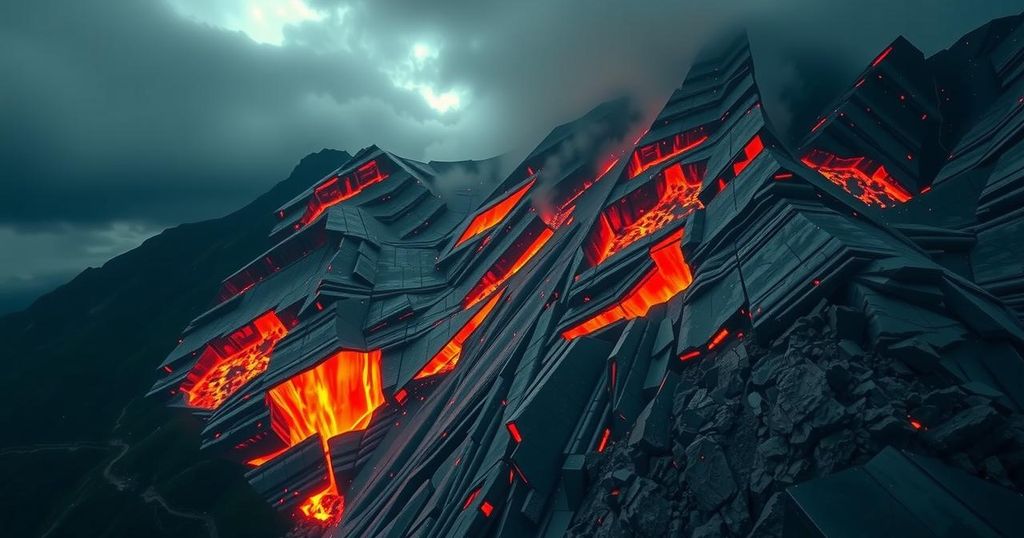Congo Mountain Collapse Exposes Copper Reserves, Sparks Colonialism Debate

A mountain collapse in the Democratic Republic of Congo revealed vast copper reserves and sparked intense discussions about colonialism and resource exploitation, with social media users advocating for the protection of these deposits from foreign powers.
A significant mountain collapse in the Democratic Republic of Congo has unexpectedly revealed vast copper reserves, igniting widespread discussion regarding colonialism and the protection of these natural resources. The incident, which took place in the resource-rich Katanga region, was captured on video and has since garnered attention online. Many individuals gathered to witness the event, with some rushing to safety as boulders fell during this dramatic occurrence. Social media users reacted fervently, calling for protective measures to safeguard these copper deposits from foreign exploitation. The Democratic Republic of Congo, particularly the Katanga region, is recognized for its extensive and high-grade copper reserves, which are located within the Central African Copperbelt—the most significant mineral-rich region globally. The country’s copper is celebrated for its superior quality, combined with relatively low extraction costs, making it advantageous in international markets. Additionally, this area is rich in other valuable minerals such as cobalt, uranium, tin, and zinc. Amid growing international demand for copper—particularly due to its relevance in electrical applications and the burgeoning green energy sector—these newly exposed reserves have sparked animated commentary. Comments on social media reflect a sense of ownership and a desire for self-determination among Congolese individuals. One user remarked, “Hello continental Europe, UK, USA, China – keep your filthy hands away. This belongs to Congo people,” while another user added, “Congo needs to ban entry of Britain and other westerners in view of the mountain collapse revealing minerals to keep them safe.” A more skeptical user suggested that the mountain’s collapse may have been a consequence of months of mining at its base, asserting, “Lubumbashi region of Kinshasa Congo are filled with copper mines, and only a few meters down the earth, one can find copper. This mountain didn’t collapse naturally but months of digging at its base made it collapse…” This incident underscores the intricate interplay of natural resources, geopolitical interests, and post-colonial legacies in the Democratic Republic of Congo. As the global landscape shifts towards renewable energy and electric vehicles, the significance of these copper reserves becomes increasingly critical to both the local economy and international supply chains.
The Democratic Republic of Congo is endowed with rich natural resources, especially its substantial copper deposits concentrated in the Katanga region. This region is part of the Central African Copperbelt, renowned for yielding high-grade minerals. Historically, the exploitation of these resources has involved various international actors, often raising ethical issues regarding colonialism, environmental impact, and local governance. The recent mountain collapse highlights the precarious nature of these resources amid ongoing demands from global markets.
In conclusion, the mountain collapse in the Democratic Republic of Congo has unveiled considerable copper reserves while also reigniting conversations about colonial legacies and the necessity to protect national resources. The various reactions on social media illustrate a deep-rooted sentiment among Congolese individuals concerning the ownership of their natural wealth. As the world increasingly pivots towards technologies reliant on copper, the importance of safeguarding these resources for the peoples of Congo cannot be overstated.
Original Source: www.hindustantimes.com








